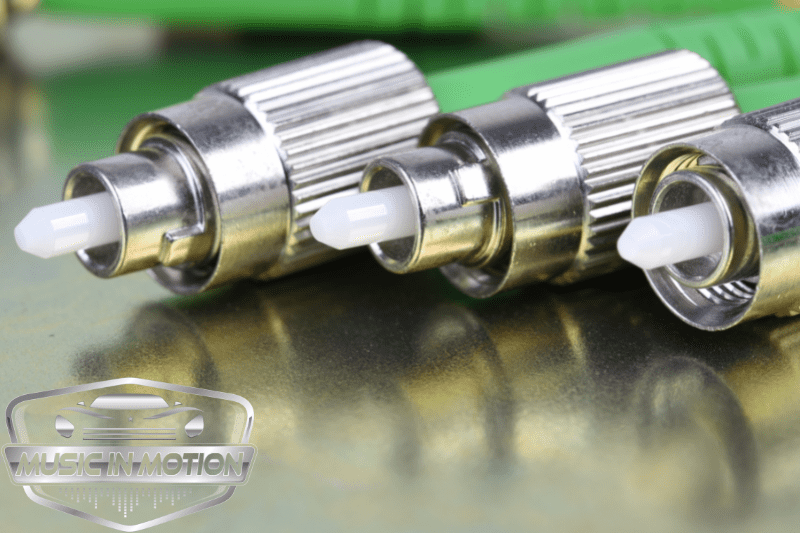Marine audio systems have come a long way over the years, and today’s systems offer high-quality sound and powerful performance. However, choosing the right connectors is as important as selecting the right speakers or amplifiers. With so many different types of marine audio connectors available in the market, it can be overwhelming to make the right choice. In this article, we’ll provide a comprehensive buying guide for marine audio connectors to help you make an informed decision.

Marine connectors come in different types, and each type has its unique features and benefits. Here are some of the most common types of audio connectors:
RCA Connectors: RCA connectors are among the most widely used marine audio connectors. They are used to connect speakers, amplifiers, and other audio equipment. They are easy to install and provide high-quality sound with low resistance.
XLR Connectors: XLR connectors are commonly used to connect microphones and other audio equipment. They are popular in professional settings, and they provide superior sound quality compared to RCA connectors.
USB Connectors: USB connectors connect audio equipment to a computer. They are easy to use and provide high-quality sound.
3.5mm Connectors: 3.5mm connectors are typically used in portable audio equipment. They are small in size and provide high-quality sound. However, they are not recommended for permanent installations.
Power Connectors: Power connectors connect the amplifier to the battery. They are available in different sizes and provide a secure and stable connection.
Choosing the right type of audio connector for your specific needs is crucial to ensure optimal audio performance and equipment protection. It’s important to consider factors such as water resistance, compatibility, and ease of installation when selecting connectors. By understanding the different types of audio connectors available in the market, you can make an informed decision and enjoy high-quality sound on your boat’s audio system.

Choosing the right audio connectors for your boat audio system ensures optimal audio performance and equipment protection. Here are some of the most important factors to consider when selecting marine connectors:
Material: Marine connectors are exposed to harsh marine environments, and they need to be made of corrosion-resistant materials. Look for connectors made of stainless steel, brass, or copper.
Water Resistance: Marine connectors need to be water-resistant to ensure that they can withstand exposure to saltwater and moisture. Look for connectors that are rated as waterproof or at least water-resistant.
Compatibility: Make sure that the connectors you choose are compatible with your existing marine audio equipment. Consider the types of connectors that your speakers, amplifiers, and other audio equipment use.
Ease of Installation: Choose connectors that are easy to install and can be done without professional help. Connectors that are easy to install can save you both time and money.
Type of Connector: Different audio connectors have different features and benefits. Consider factors such as sound quality, application, and durability when selecting the right connector type for your specific needs.
By taking these factors into account when selecting audio connectors, you can make an informed decision and ensure that your boat audio system delivers the best possible sound quality while being protected from the harsh marine environment.

What is the difference between RCA and XLR connectors?
RCA connectors are commonly used to connect speakers and amplifiers, while XLR connectors connect microphones and other audio equipment. XLR connectors provide superior sound quality compared to RCA connectors.
How do I know if a connector is waterproof?
Look for connectors that are rated as waterproof or water-resistant. These connectors have a special coating or seal that protects them from moisture and salt water.
Can I use non-marine connectors in my marine audio system?
No, it is not recommended to use non-marine connectors in your marine audio system. Non-marine connectors are not designed to withstand the harsh marine environment. They can corrode or fail quickly, leading to poor sound quality or damaging your audio equipment.
Do I need to use specific connectors for specific audio equipment?
Yes, it is essential to use the right connectors for each audio equipment to ensure proper compatibility and prevent damage. For instance, XLR connectors are designed for microphones, and using them for speakers can result in poor sound quality or damage to the equipment.
Can I install marine audio connectors myself?
Yes, you can install marine audio connectors yourself, but it is recommended to seek professional help if you’re not experienced in marine audio installations. A professional installer can ensure that the connectors are properly installed and avoid any damage to your audio equipment. (Elite Restomods is the nation’s premier classic car dealer, and they use Music In Motion for all their audio designs and installs.)

Choosing the right marine audio connectors is crucial to get the best sound quality and ensuring your audio equipment is protected from the harsh marine environment. When selecting connectors, consider the material, water resistance, compatibility, and ease of installation.
By following this guide and understanding the different types of marine audio connectors available in the market, you can make an informed decision and enjoy high-quality sound on your marine audio system.
